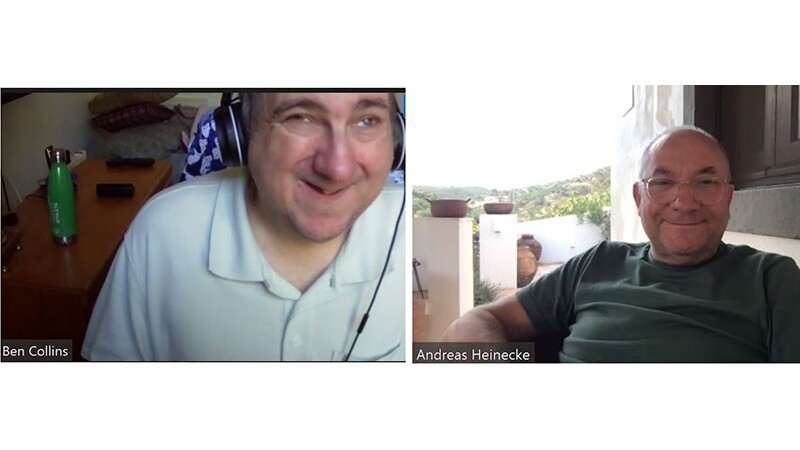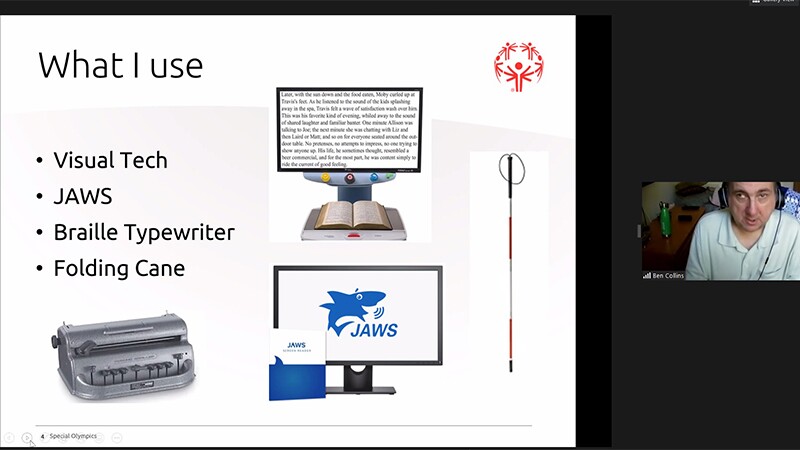
World Sight Day was established by the Lions Clubs International Foundation in 2000 to help fight preventable vision impairment and to bring awareness to issues experiences by those with visual disabilities.
On World Sight Day 2020, Special Olympics Operations Specialist Ben Collins shared learnings and insights with Dialogue in the Dark founder Dr. Andreas Heinecke. Dialogue in the Dark, headquartered in Germany, is a series of global exhibitions and workshops that offer opportunities to learn about the experience of being visually impaired.
Ben presented his “Welcome to My World” workshop, which is now being done virtually, in which he explains how he is able to type and read emails, how he advocated for an audible street crossing signal close to his office and how the chat feature in Zoom can be disruptive. Ben and Dr. Andreas agreed that personal exchanges like these help foster inclusion.

“Our exhibit tour guides are blind and are experts in being visually impaired. They are best people to demonstrate the abilities of blind people,” Dr. Andreas Heinecke shared in response to Ben’s question about the staff at Dialogue in the Dark. “That way, an exchange is created, a bond, that helps fight bias.”
Providing thousands of jobs and income to visually impaired people was also important to Dr. Andreas Heinecke. Ben pointed out that underemployment is also an issue in the intellectual disability community. Special Olympics addresses employment in the Inclusion Works campaign.
Through Special Olympics Lions Clubs International Opening Eyes, Special Olympics trains health professionals and provides comprehensive eye assessments, prescription eyewear, sunglasses and sports goggles to Special Olympics athletes and others with intellectual disabilities. After going through 12 testing stations, the exam information is reviewed and a decision is made if the athlete needs a new pair of prescription glasses or sport goggles. Through the generosity of Special Olympics corporate sponsors Essilor (lenses) and Safilo (frames), athletes choose from a selection of eye wear. Athletes who do not need any corrective lenses receive non-prescription sunglasses.

Opening Eyes data shows that globally, two in ten athletes have never had an eye exam, and three in ten need a new prescription. To address this problem, we encourage health care providers to learn more about how they can treat people with intellectual disabilities, by taking a free course.
By the end of the conversation, Ben and Dr. Andreas Heinecke were impressed by what the other was doing to promote inclusion within the visually impaired community and they both look forward to connecting in person at the Special Olympics World Games Berlin 2023.









